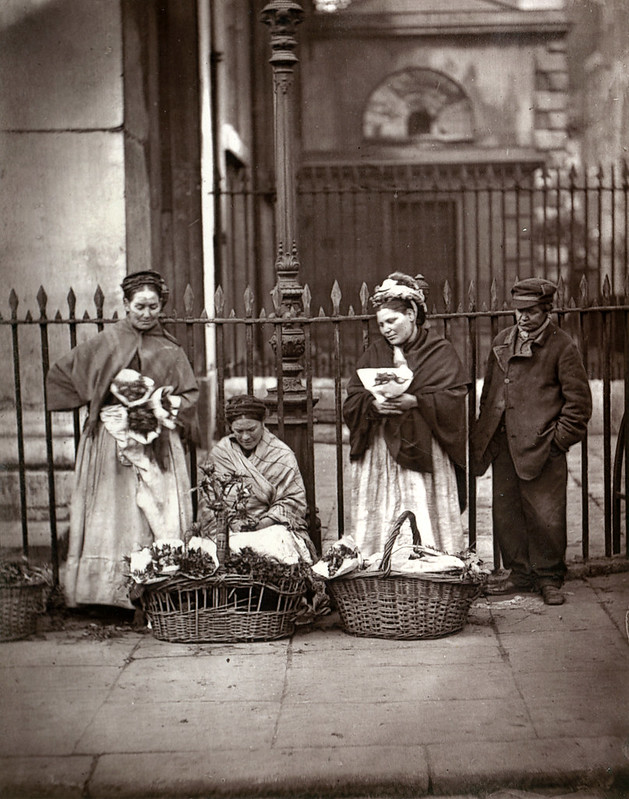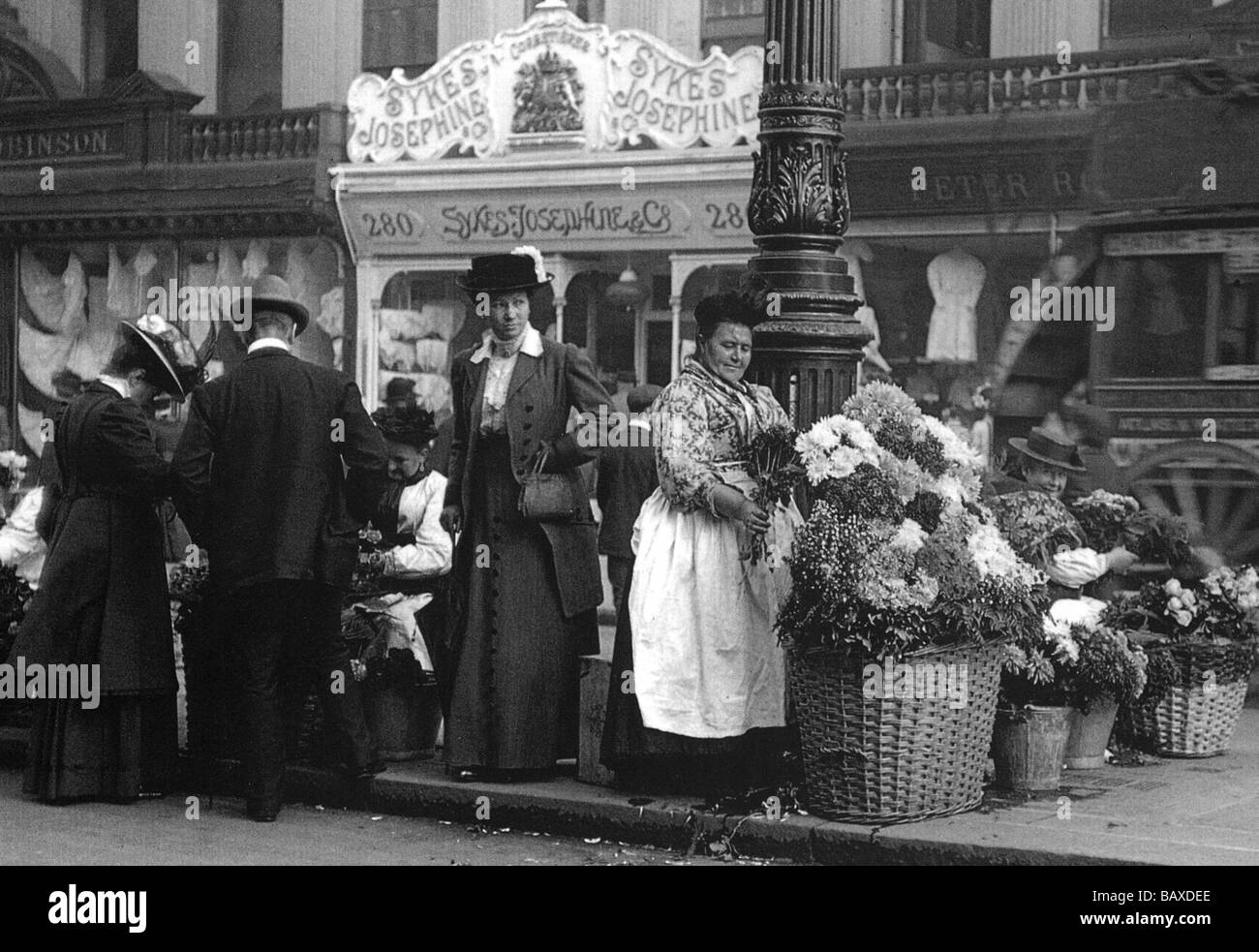This Women’s History Month we are delving into the world of women’s work, exploring the jobs, industries and conditions in which women have worked by using materials from LSE’s Digital Library, writes Mhairi Gowans. Our second blog in this series looks at the plight of London’s flower sellers who were particularly predominant during the 19th century.
Adolphe Smith in his book, Street Life in London, was one of the many journalists to record the life of London’s female flower sellers. Earlier fashions had favoured expensive flowers from abroad, but the Victorian preference for local flowers like primroses and nosegays meant that the opportunity to work selling flowers was available for girls and young women in need of unskilled employment.
 Covent Garden Flower Women. LSE
Covent Garden Flower Women. LSE
Typically flower sellers began as children due to orphanhood or to supplement the family income. The amount these girls could expect to make was low – one orphaned girl told documenter of the London poor, Henry Mayhew, that she made around sixpence a day. The girl explained she and her sister and a brother who was also working, lived on a diet of bread, tea and the occasional herring.
When death takes one of the group away, a child has been generally reared to follow in her parents’ footsteps.
The flower sellers were also recorded by journalists as either selling in the day or night. Those who sold in the day were seen as the more virtuous as those who sold at night were understood to be selling more than flowers. In fact, the term flower girl ultimately became synonymous with prostitute. However, the result was that the night sellers could make around £3 a week, while those who sold only during the day might only make ten shillings.
In the summer months more than a pound in profits have been cleared in a week; but in bad weather these women have often returned home with less than a shilling as a result of twelve hours exposure to the rain.

– Street Life in London, Adolphe Smith, 1877
The case of one flower seller was recorded by Henry Mayhew in the Morning Chronicle in 1849. This girl recounted being sent out by her parents at age nine to sell flowers and would rarely be home before midnight. Eventually, by the age of 13, neither her father nor mother worked, relying solely on the money their daughter made through prostitution.
She continued in this state, her father and mother living upon her prostitution, until about nine months ago, when her father turned her out of his house because she couldn’t bring home money enough to him.
– London Labour and the London Poor, Henry Mayhew, 1851
At the time of speaking to Mayhew she had taken to committing crime in the hope of being placed in a prison or an asylum, being “tired of her life”.
Flower-girls deteriorate rapidly after they reach the age of fifteen. Everything that is ‘womanly’ seems to die out within them, they grow lawless and lose all sense of what is ‘clean and decent’.
– Toilers in London; or Inquiries concerning Female Labour in the Metropolis, British Weekly Commissioners, 1889
The flower selling caste of women were often seen as being largely single, however there are also reports that many were in unofficial marriages or partnerships. In those cases, the women often found themselves having to support a jobless man as well as themselves. The result of this hard life of poverty and of traipsing the streets in all weathers meant that flower sellers aged quickly. With home an uncomfortable slum, what little money they had was spent in pubs in the good times and in gin houses in the bad.
Our Commissioners report case after case in which the lad has been found in bed at twelve o clock in the morning, while his round-the-corner has been busy selling flowers to provide him with breakfast. Lads like this begin with promises of carrying baskets, but soon sink into lives of complete laziness.
– Toilers in London; or Inquiries concerning Female Labour in the Metropolis, British Weekly Commissioners, 1889

With flower selling women suffering both extreme poverty and representing moral ambiguity, some charities hoped to place the girls and women in the industry into more structured employment, with service being the primary focus. However, service meant long hours, low pay and being isolated in the house of your employer. It was not an attractive proposition, even given the poverty these women and girls were living in.
I’ll go to prison sooner than be a servant,” such a one says when asked if she will enter the Mission. With her the word is synonymous with drudgery, loss of freedom, and oppression; and little wonder, considering what the life of a ‘slavey’ is in most houses.
– Toilers in London; or Inquiries concerning Female Labour in the Metropolis, British Weekly Commissioners, 1889
As the 19th and 20th centuries went on and there was improvement in child labour regulations, age of consent laws, as well as better employment options for adult women, the phenomenon of the London flower girls dwindled. One of the last street flower sellers in London was Agnes Pegg who sold violets in Piccadilly Circus until the 1970s.
Adolphe Smith’s Street Life in London is available at the LSE Digital Library.